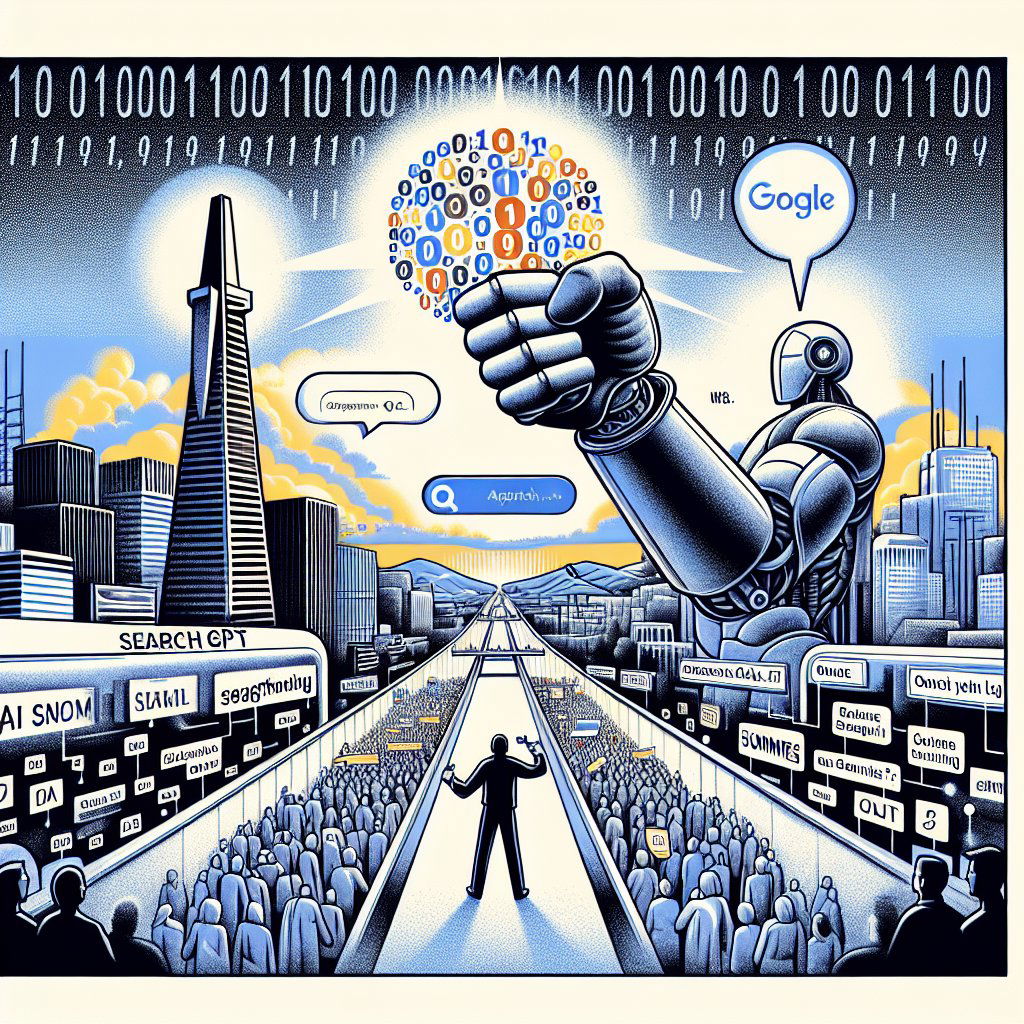Image created by AI
OpenAI Takes on Google with SearchGPT: A New AI-Powered Quest for Search Engine Supremacy
In a formidable challenge to Google's dominance in the search engine marketplace, OpenAI has recently thrown down the gauntlet with the announcement of its innovative SearchGPT prototype. Characterized as a blend of OpenAI’s powerful artificial intelligence models with extensive web information, SearchGPT is designed to rapidly provide users with answers to their online inquiries and effectively cite the sources of relevance.
Positioning itself as a direct competitor, OpenAI is stepping into the ring with the tech giant. San Francisco-based OpenAI has said it is gradually rolling out access to SearchGPT to a select group of users and contributors, pursuing valuable feedback to refine the technology. This feedback loop is crucial as the startup envisions the integration of SearchGPT's improved search functionalities into its widely popular ChatGPT platform.
The interactive nature of SearchGPT sets a new precedent in the realm of digital search. Users are encouraged to engage in a dialogue with the AI, posing questions and follow-ups as naturally as they might in conversation with another human, marking a significant turn away from the static search model currently employed by traditional search engines.
This development comes as Google itself is venturing into enhanced AI integration. The company has introduced "Overviews", AI-generated summaries of search results aimed at immediately answering the searcher's intent. While mimicking a conversational mode akin to OpenAI's description of SearchGPT, Google's adaptation has raised apprehensions about the consequent reduction of ad space, a key source of revenue for the company.
The fierce competition to create generative AI applications capable of transforming text, images, and other media forms has been heating up ever since ChatGPT's release in late 2022. Both OpenAI and industry colossus Google are actively innovating across different aspects of AI technology to seize leadership in this evolving field.
As part of this pursuit, OpenAI has explicitly separated the development and refinement of SearchGPT from the training of its base generative AI models. This stratified approach indicates a strategic focus on the unique needs and challenges within the realm of search, setting it apart from more generalized AI development.
The significance of AI in shaping the future of internet navigation is evident, and OpenAI underscores the vital importance of establishing such technology on a foundation that underlines journalistic integrity and supports content creators. Nicholas Thompson, the Chief Executive Officer of The Atlantic, echoed this sentiment in the OpenAI blog post, expressing enthusiasm about their anticipated collaboration with OpenAI to foster a technology respecting the journalistic craft.
With anticipation building, OpenAI extends an invitation to the broader community to join a waitlist for experiencing SearchGPT firsthand. As this pioneering platform heads toward wider release, it holds the promise of redefining the implementation of artificial intelligence in our daily search interactions.










